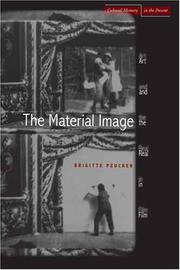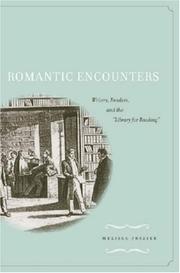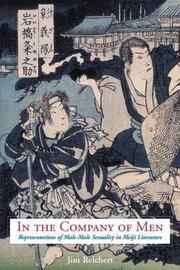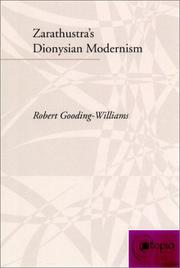| Listing 1 - 10 of 38 | << page >> |
Sort by
|
Digital
Year: 1959 Publisher: Stanford Stanford University Press
Abstract | Keywords | Export | Availability | Bookmark
 Loading...
Loading...Choose an application
- Reference Manager
- EndNote
- RefWorks (Direct export to RefWorks)
Book
ISBN: 9780804796453 9780804797139 Year: 2016 Publisher: Stanford Stanford University Press
Abstract | Keywords | Export | Availability | Bookmark
 Loading...
Loading...Choose an application
- Reference Manager
- EndNote
- RefWorks (Direct export to RefWorks)
This book is a counter to the conventional wisdom that the United States can and should do more to reduce both the role of nuclear weapons in its security strategies and the number of weapons in its arsenal. The case against nuclear weapons has been made on many grounds : historical, political, and moral. But, the author argues, it has not so far been informed by the experience of the United States since the Cold War in trying to adapt deterrence to a changed world, and to create the conditions that would allow further significant changes to U.S. nuclear policy and posture. Drawing on the author's experience in the making and implementation of U.S. policy in the Obama administration, this book examines that real world experience and finds important lessons for the disarmament enterprise. Central conclusions of the work are that other nuclear-armed states are not prepared to join the United States in making reductions, and that unilateral steps by the United States to disarm further would be harmful to its interests and those of its allies. The book ultimately argues in favor of patience and persistence in the implementation of a balanced approach to nuclear strategy that encompasses political efforts to reduce nuclear dangers along with military efforts to deter them.
Polemology --- anno 2000-2099 --- United States --- Afschrikking (Strategie) --- Deterrence (Strategy) --- Dissuasion (Stratégie) --- Nuclear weapons --- Government policy --- National security --- Military policy --- Foreign relations --- 21st century

ISBN: 9780804754316 9780804754309 0804754314 Year: 2007 Volume: *11 Publisher: Stanford, CA Stanford University Press
Abstract | Keywords | Export | Availability | Bookmark
 Loading...
Loading...Choose an application
- Reference Manager
- EndNote
- RefWorks (Direct export to RefWorks)

ISBN: 0804748721 9780804748728 Year: 2006 Publisher: Stanford, CA Stanford University Press
Abstract | Keywords | Export | Availability | Bookmark
 Loading...
Loading...Choose an application
- Reference Manager
- EndNote
- RefWorks (Direct export to RefWorks)
944.028 --- Geschiedenis van Frankrijk: François I; Henri II; Charles IX; Henri III--(1498-1589) --- Political culture --- Political customs and rites --- History --- France --- Politics and government --- 944.028 Geschiedenis van Frankrijk: François I; Henri II; Charles IX; Henri III--(1498-1589) --- Customs and rites, Political --- Political rituals --- Rituals, Political --- Manners and customs --- Political anthropology --- Rites and ceremonies --- Culture --- Political science
Book
ISBN: 9780804763592 0804763593 Year: 2012 Publisher: Stanford, CA Stanford University Press
Abstract | Keywords | Export | Availability | Bookmark
 Loading...
Loading...Choose an application
- Reference Manager
- EndNote
- RefWorks (Direct export to RefWorks)
Censorship --- Literature and state --- Censure --- Littérature --- History --- Histoire --- Politique gouvernementale --- France --- Intellectual life --- Politics and government --- Vie intellectuelle --- Politique et gouvernement --- 351.751 <44> "17" --- 655.4 <44 PARIS> --- 098.1 --- Mediarecht. Vrijwaren van de vrijheid van denken, van de persvrijheid. Censuur. Filmcensuur. Reclamerecht--(Fundamentele vrijheden in de grondwet zie {342.732})--Frankrijk--18e eeuw. Periode 1700-1799 --- Uitgeverij. Boekhandel--algemeen--Frankrijk--PARIS --- Verboden boeken --- 351.751 <44> "17" Mediarecht. Vrijwaren van de vrijheid van denken, van de persvrijheid. Censuur. Filmcensuur. Reclamerecht--(Fundamentele vrijheden in de grondwet zie {342.732})--Frankrijk--18e eeuw. Periode 1700-1799 --- 098.1 Verboden boeken --- Littérature
Book
ISBN: 9780804784863 0804784868 Year: 2013 Volume: *1 Publisher: Stanford, CA Stanford University Press
Abstract | Keywords | Export | Availability | Bookmark
 Loading...
Loading...Choose an application
- Reference Manager
- EndNote
- RefWorks (Direct export to RefWorks)
Cold War --- Political aspects --- Congo (Democratic Republic) --- United States --- Soviet Union --- History --- Foreign relations

ISBN: 0804725985 Year: 1996 Publisher: Stanford University Press
Abstract | Keywords | Export | Availability | Bookmark
 Loading...
Loading...Choose an application
- Reference Manager
- EndNote
- RefWorks (Direct export to RefWorks)

ISBN: 0804755175 Year: 2007 Publisher: Stanford, CA Stanford University Press
Abstract | Keywords | Export | Availability | Bookmark
 Loading...
Loading...Choose an application
- Reference Manager
- EndNote
- RefWorks (Direct export to RefWorks)

ISBN: 0804752141 Year: 2006 Publisher: Stanford Stanford University Press
Abstract | Keywords | Export | Availability | Bookmark
 Loading...
Loading...Choose an application
- Reference Manager
- EndNote
- RefWorks (Direct export to RefWorks)

ISBN: 0804732949 0804732957 Year: 2001 Volume: *1
Abstract | Keywords | Export | Availability | Bookmark
 Loading...
Loading...Choose an application
- Reference Manager
- EndNote
- RefWorks (Direct export to RefWorks)
The author shows that literary fiction can do the work of philosophy, arguing that Nietzsche's Thus Spoke Zarathustra is a philosophical explanation of the possibility of modernism. Nietzsche takes up the problem of modernism by inventing Zarathustra, a self-styled cultural innovator who aspires to subvert the culture of modernity (the repressive culture of the 'last man') by creating new values. By showing how Zarathustra can become a creator of new values, notwithstanding the forces that hinder his will to innovate, Nietzsche answers the skeptic who proclaims that new-values creation is impossible. Zarathustra is a story of repeated clashes between Zarathustra's avant-garde, modernist intentions and figures of doubt who condemn those intentions.
| Listing 1 - 10 of 38 | << page >> |
Sort by
|

 Search
Search Feedback
Feedback About UniCat
About UniCat  Help
Help News
News